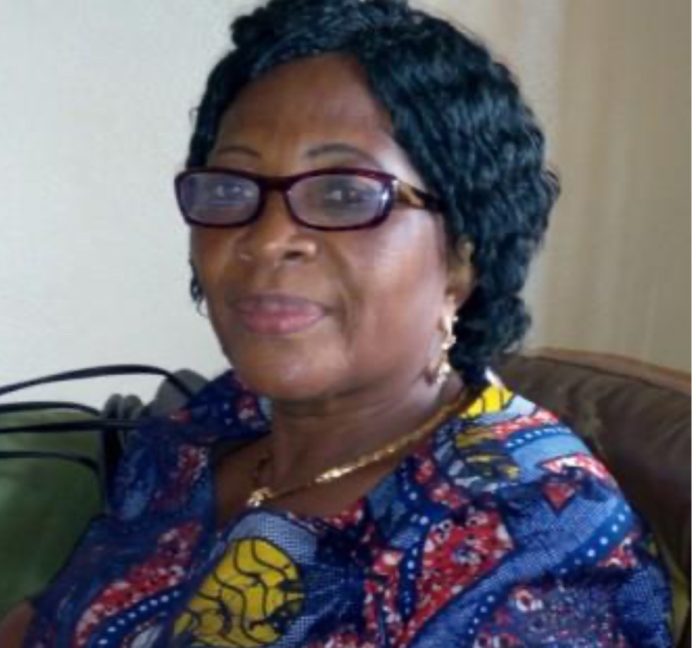AYV News, June 20, 2025
In collaboration with the Ministry of Health, RAMSY Medical Laboratories and other partners, the Sierra Leone sickle Cell Society is commemorating the 17th World Sickle Cell Day Sierra Leone Sickle cell Society, on the theme:‘Uniting for Cell Day World Sickle’. The primary goal is to bring on board more partners and increase public knowledge and an understanding of the disease.
According to the National Coordinator of the Society in Sierra Leone, Amelia Gabba, the objectives of the Celebration is to disseminate accurate information about Sickle Cell Anemiamuch closer to the common Sierra Leonean public, train medical professionals including doctors, nurses, and midwives at the referral hospitals as Sickle Cell Genetic Counselingtrainers and to motivate private, government and other health organizations to actively participate in quality management and control of this disease.
Mrs. Gabba reiterated that the Sierra Leone Sickle Society has been involved in clinical, consultative services, genetic counselling, and the care of sickle cell patients and their families since 1992. These activities were interrupted for some years during the civil war but were re-launched in 2006 after the war.
Effective awareness worldwide remains fundamental in controlling the incidence and consequences of sickle cell disease. Various government organizations, global health Agencies, and Non-Government organizations work tirelessly to aid those with Sickle Cell Disease.
But still, upsettingly, sickle cell remains one of the common chronic inheritable, genetic disorders affecting African and Asian countries, causing Anemia, chronic and acute ill health, and premature death, experiences that are common in our country. The disease presents not just severe health problems, but also serious social and economic problems as well.Mrs. Gabba noted that apart from direct care to patients, the Society also serves
an advocacy function and undertakes public education in schools and for the public at large through social mobilization activities on radio and TV, newspaper articles, and public meetings.
As usual, the Society is at the forefront of this year’s celebrations with its unwavering commitment to raising awareness about the nature of the disease, its various types, and its impact on families and, importantly, the need for proper management in individuals living with the disease in our country.
The United Nations General Assembly, at its 63rd session in 2008, declared the 19th of June to be celebrated annually as World Sickle Cell Day in order to raise worldwide awareness of the disease. World Sickle Cell Day was first celebrated on 19th of June 2009.
Sickle cell arose as a consequence of a mutation in DNA composition resulting in the production of the abnormal haemoglobin, sickle haemoglobin that is handed down from generation to generation.
Madam Gabba reiterated that suffering from sickle cell Anemia usually means that a person has Anemia (low level of Hemoglobin) because of abnormally shaped red blood cells that stick to the walls of small blood vessels in which they cause blockage in flow leading to oxygen starvation to the body organs that they supply that, in turn, causes severe pain, organ damage and failure, severe infections, stroke, headache, liver and heart problems, acute abdomen and bone and joint complications.
Currently, treatment is mainly focused on preventing and treating pain episodes and other complications and specialized treatments including cure are not available in Sierra Leone.
Mrs. Gabba also pointed out that in Sierra Leone, like in other West African countries, the majority of children with the most severe form of the disease, (Hb SS, Sickle Cell Anemia) die before the age of 5, usually from an infection including acute respiratory tract infection, vaccine preventable infections, malaria, severe anemia and malnutrition.
According to the President of the Africa Health Organization (AHO), in his speech for 2024 World Sickle Cell Day, and as published in the AHO Newsletter, in countries such as Cameroon, Republic of Congo, Gabon, Ghana, and Nigeriaprevalence of the sickle gene is between 20% to 30%, while in some parts of Uganda it is as high as 45%.
In Sierra Leone the prevalence is 24% (Wurie et al). The Sierra Leone Sickle Cell Society, in collaboration with the RAMSY Medical Laboratories has, over the years, registered 4,791 cases based on confirmatory electrophoresis tests.
Among these 3,549, have Hb SS, 162 have Hb SC, and 1080 have Hb AS. These numbers represent just the tip of an iceberg, as there are so many untested individuals out there in the communities. With this background it is clear that raising awareness for Sickle Cell Disease (SCD) is an essential effort!She urged for people to get tested because most people are unaware that they have sickle cell trait.

